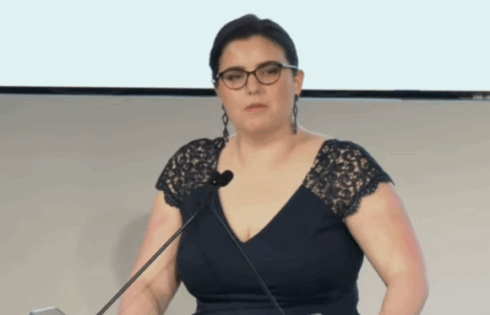
Black adolescents also want to see white people portrayed as villains
Gen Z would rather see movies that show two men fighting each other, rather than kissing one another, according to a new survey from the University of California Los Angeles.
The younger, college-aged generation ranked superhero movies and action films high in their interest list, along with “hopeful, uplifting content with people beating the odds” and “people with lives like my own” according to the survey.
Meanwhile, “Nonbinary and LGBTQIA+ Identities” is ranked at the bottom, according to the survey from UCLA’s Center for Scholars and Storytellers.
The survey of 1,500 people also found Gen Z is not interested in sexual content, which may explain their lack of interest in LGBT identity-focused programming.
Respondents reported that they use entertainment media “to escape and take my mind off of things.”
Storylines about political content such as “racial minorities,” “climate change,” and “immigration” do not make the top 10 ranking.
According to the study, “47.5% of adolescents said that sex isn’t needed for the plot of most TV shows and movies.
“We know that young people are suffering an epidemic of loneliness and they’re seeking modeling in the art they consume,” researcher Yalda Uhls stated in the news release. “While some storytellers use sex and romance as a shortcut to character connection, it’s important for Hollywood to recognize that adolescents want stories that reflect the full spectrum of relationships.”
The UCLA researchers did not respond to two requests for comment sent in the past two weeks that asked about why respondents are not interested in LGBT content. The team told The College Fix on Nov. 16 it would ask the media department to comment, but it did not provide answers.
The Fix also asked about why racial minorities may have wanted to see white people cast as the villain.
Cultural critic and former English professor Mark Bauerlein said the survey results could be positive or negative.
“I am not sure how to interpret the findings,” he told The Fix via email. “For instance, we have a preference for more non-erotic relationships in media, more friendships and less sex.
“What does this mean, though: Is it a healthy recoil from the relentless and shallow sex stuff in media? Or, is it simply another expression of the trend against marriage and family formation, a desire to stay single (which is expressed in the study)?”
Gen Z looks to social media for news
The survey also found Gen Z views streaming platforms and social media as most “authentic.”
The survey asked respondents, “Which media space does the best job of making content that feels authentic to you?”
About one-third of respondents said, “social media,” while 25 percent chose “streaming platforms.” Another 17.7 percent picked “video games.”
“Our findings demonstrate the variety of qualities adolescents are looking for in storytelling: from more authentic storylines that reflect their lived experiences to a more diverse spectrum of relationships, young people are letting it be known what it is that they want,” the researchers wrote in the conclusion.
“As for where young people access these representations of themselves, Gen Z has a much wider array of media content to choose from than any generation before – thanks to the internet and social media,” they wrote.
“And though the ubiquity of social media can have its downsides, it also offers a cornucopia of vibrant (but virtual) spaces that can motivate young people to learn new skills, explore new connections, live a better life, or engage in activism for a specific cause.”
MORE: DEI ‘scholars’ says older workers need to learn about racism from Gen Z
IMAGE: Marvel Entertainment/YouTube
Like The College Fix on Facebook / Follow us on Twitter






Please join the conversation about our stories on Facebook, Twitter, Instagram, Reddit, MeWe, Rumble, Gab, Minds and Gettr.